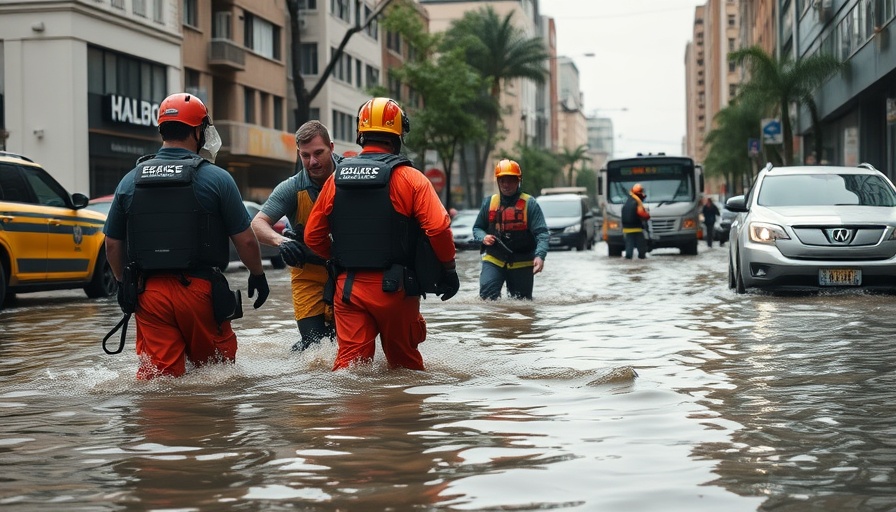
President Trump Addresses Flooding in Hill Country Amid Controversy
During a recent visit to the Hill Country, President Trump faced backlash as he surveyed flood-damaged areas following severe weather that devastated local communities. The community has expressed frustration over what many describe as an inadequate emergency response from both local and federal governments. As citizens grapple with widespread destruction, Trump's administration is under scrutiny for its handling of federal disaster relief.
Community Voices: The Emotional Toll of Natural Disasters
The flooding in the Hill Country has disrupted lives, with numerous residents forced to evacuate, businesses damaged, and critical infrastructure compromised. Local community leader, Sarah Bennett, emphasized the psychological impact of these disasters, stating, “People are not just losing their homes; they are losing their sense of normalcy.” The emotional strain from such events can linger long after the floodwaters recede, affecting mental health even as physical recovery efforts are initiated.
A Comparison to Other Recent National Disasters
This incident draws parallels to other significant natural disasters across the United States, such as Hurricane Harvey in Houston, where delayed and inequitably distributed assistance left many residents in peril. Despite advancements in disaster preparedness protocols, repeated patterns of insufficient response raise questions about leadership during crises. As the Hill Country struggles to return to normalcy, the tangible effects of a weak governmental response become starkly apparent.
Future Implications: Learning from Past Mistakes
As local government officials, including the Dallas City Council, strive to improve emergency response systems, the Hill Country experience could serve as a critical case study. Discussions surrounding the allocation of resources and clear communication are necessary to ensure that communities are not left to fend for themselves in crises. Without proactive measures in place, similar situations can lead to catastrophic consequences for regions like Dallas and beyond.
Reactions From Local Leaders and Residents
Local leaders have been outspoken about their disappointment with federal responses post-flooding, calling for immediate reassessment of emergency protocols. During a town hall meeting, resident John Miller expressed the community’s urgency: “We can’t wait for articles and reports; we need solutions now.” It’s evident that residents feel abandoned in their time of need, calling upon officials to act decisively and compassionately.
The Role of the Media in Crisis Situations
Media coverage plays a pivotal role in maintaining awareness of ongoing issues and mobilizing community support. Coverage of the Hill Country flooding has illustrated the importance of transparency and accountability in government response. By distributing accurate and timely information, local news outlets can empower citizens, enabling them to advocate for themselves and their communities in the face of adversity.
Beyond the Flood: Long-Term Recovery and Infrastructure Improvements
As communities turn their focus to rebuilding, critical infrastructure investments become essential. The Dallas area, known for its bustling economy, must prioritize effective drainage systems to mitigate future flooding risks. Planning commissions and public officials should foster collaboration with engineers and environmental experts, utilizing technology to identify weaknesses and make data-driven improvements.
Call to Action: Engage with Local Government Initiatives
In the aftermath of this disaster, it's essential for citizens to engage with their local governments actively. Attending community meetings, voicing concerns, and demanding accountability from leaders can drive transformative change. Residents are encouraged to stay informed about disaster relief initiatives and local council decisions regarding emergency services. Together, through collective advocacy and active participation, communities can emerge stronger and more resilient.
 Add Element
Add Element  Add Row
Add Row 



Write A Comment